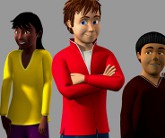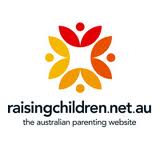
- about a program to help children between the age of 8 and 12 improve their social and emotional resilience is attracting worldwide attention.
Everyday life for children with poor social and emotional skills can be a minefield. The skills to make friends, cope with change, deal with bullying, understand emotions and express feelings appropriately don't always come naturally.
A program to help children between the age of 8 and 12 improve their social and emotional resilience is attracting worldwide attention. Developed by clinical psychologist Dr Renae Beaumont, the Secret Agent Society (SAS) program is achieving never before seen outcomes in children through a multimedia package unlike any other social skills program of its kind in the world.
SAS is unique in the way it is presented and structured. Think spies, computer games, home missions, secret codes and walkie-talkies and you begin to understand why children are captivated by the program. With child engagement an important outcome predictor for intervention programs targeting children, it is this ease of engagement and motivation to participate and learn which sets SAS apart. Child sessions are also run in small groups as research shows this is the most effective form of social skills intervention for children with mental health disorders (Cotugno, 2009; Antshel & Remer, 2003; Spence, Donovan & Brechman-Toussaint, 2000).
SAS features an evidence-based, ready-to-use curriculum, eye-catching resources and session plans to help educators and other professionals feel confident about how to help students either as a child's teacher or as a school-based group facilitator.
SAS training is available to government departments, schools, community groups and private practice through the Social Skills Training Institute. Visit http://www.sst-institute.netfor more information.
By clinical psychologist and training and dissemination consultant for the Social Skills Training Institute, Kathleen Davey.
Kathleen Davey is a clinical psychologist with eleven years' experience supporting clients of all ages with autism spectrum conditions. Her experience includes working alongside internationally recognised experts Professor Gary Mesibov, Dr Tony Attwood, and Dr Michelle Garnett. Kathleen joined Dr Renae Beaumont at the Social Skills Training Institute in 2010 and also runs a private practice focussing on adolescents and adults with autism spectrum conditions.
Antshel, K.M., & Remer, R. (2003). Social skills training in children with attention deficit hyperactivity disorder: A randomized-controlled clinical trial. Journal of Clinical Child and Adolescent Psychology, 32(1), 153-165.
Beaumont, R., & Sofronoff, K. (2008). A multi-component social skills intervention for children with Asperger syndrome: The junior detective training program. Journal of Child Psychology and Psychiatry, 49(7), 743-753.
Cotugno, A.J. (2009). Social competence and social skills training and intervention for children with autism spectrum disorders. Journal of Autism and Developmental Disorders, 39(9), 1268-1277.
Spence, S.H., Donovan, C., & Brechman-Toussaint, M. (2000). The treatment of childhood social phobia: The effectiveness of a social skills training-based, congnitive-behavioural intervention, with and without parental involvement. Journal of Child Psychology and Psychiatry, 41(6), 713-726.
 From Raising Children Network – the Australian parenting website.
From Raising Children Network – the Australian parenting website. 



